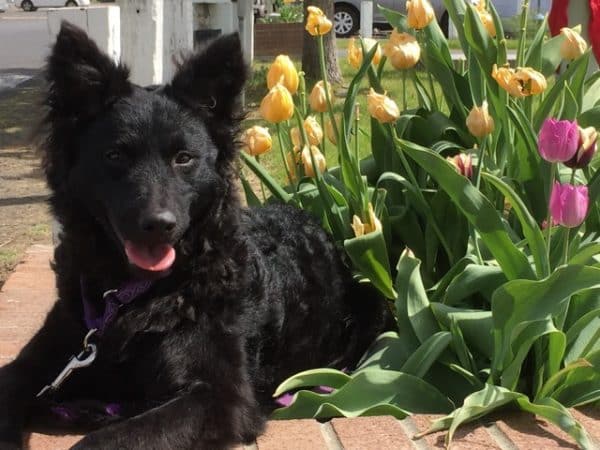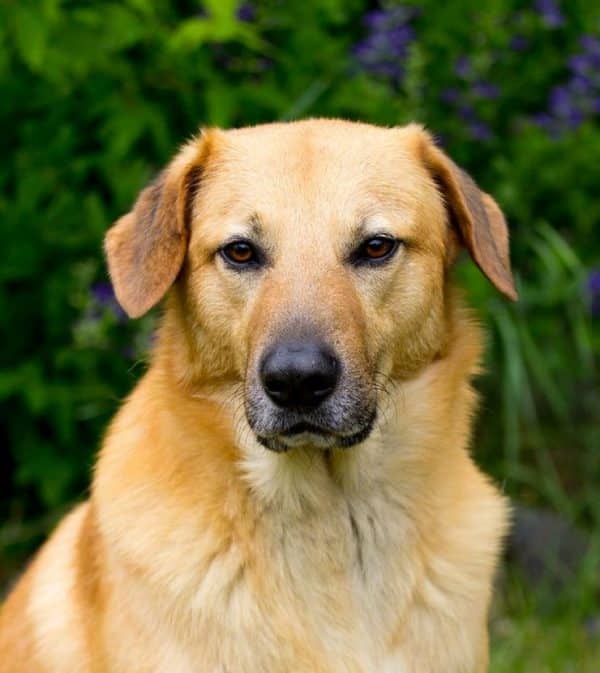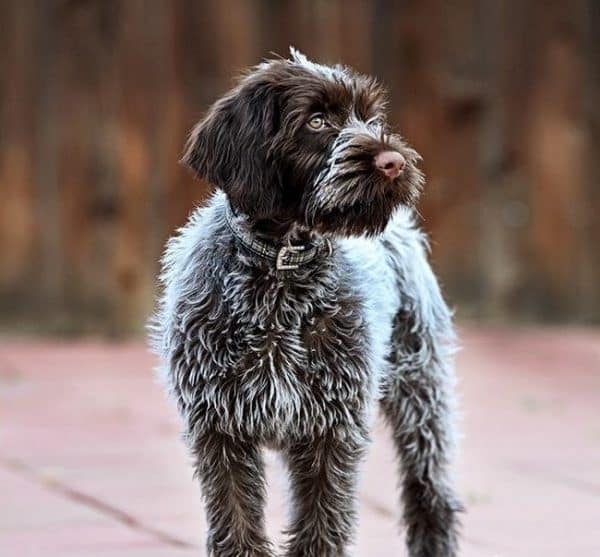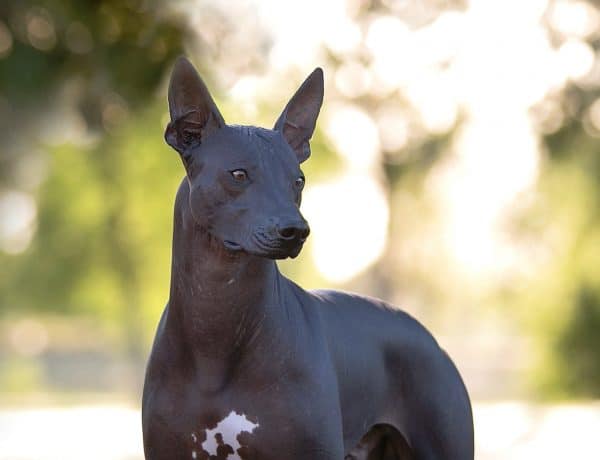Breed names such as Poodle, Greyhound, Bulldog, and Beagle roll off the tongue rather easily. But especially as we move toward the lesser-known breeds, we may find pronunciation challenging. For instance, is the sighthound Sloughi a “sluh-fee” or “slu-ghee?”
Five breeds have diplomatically agreed to shine light on their breed pronunciations. The Sloughi had a prior engagement, but she replied with some help: Slu-ghee.
1. Mudi

Mudi courtesy Laura Kinne
I’m a rather rare Hungarian breed, developed to work sheep and cattle, watch over the house, and exterminate small vermin too. Active, intense, and agile, I can manage the most stubborn livestock. Now about my name: Although I’ll readily run through mud while herding, my name is not pronounced “muddy.” Instead, the pronunciation of my name is “moodie.” And if you see more than one of us, keep in mind we aren’t “Mudis.” Because many plurals in Hungarian involve the K, the plural of my name is Mudik. Yep, it’s pronounced “mood ik.”
2. Chinook

Chinook courtesy Kathleen Riley Photography
We’re an American-made sled dog, bred by explorer Arthur Treadwell Walden in New Hampshire for power, endurance, and yet a gentle temperament. My heroic ancestors, including my forefather named Chinook, pulled sleds for Admiral Richard Byrd’s Antarctic Expedition.
Although developed in New Hampshire, my name relates to Pacific Northwest Native Americans, the Chinookan peoples. Most folks in the Northwest are familiar with the word Chinook; you’ll find municipalities, wineries, and stores with the Chinook name. Ready to say it? I’m a shĭ-no͝ok′. Try pronouncing it with a “sh” like in “shin.” And the “nook” rhymes with book. Easy as pie! American pie, actually. I’m one of the few breeds made in America.
3. Wirehaired Pointing Griffon

Wirehaired Pointing Griffon courtesy Renee Mason Carter
We’re close-working, versatile gun dogs, developed to hunt upland game birds and waterfowl. With Dutch ties to breeder E.K. Korthals of Holland, and extensive development in France, we deem ourselves one family in the larger continental family of Griffons. My name emphasizes my form and function. My wirehaired coat helps me avoid picking up burrs in the field. And yes, I point to my quarry. Wirehaired and pointing are easy to pronounce, but folks sometimes pronounce Griffon as “Griffin.” Hmm. Consider saying Griffon as though standing by the Eiffel tower, French beret in hand perhaps? “Grih-FAHN” sounds continental, sporty and classy, n’est-ce pas?
Now that you said my name correctly (merci!), check out a slow-mo peek at my coat shaking off the water. Cool, right?
4. Xoloitzcuintli

Xoloitzcuintli courtesy Amy Wise
Hands down, paws up, we’ll win any contest for misspelled or mispronounced breed names. When our families say our name to newcomers, the common response is “A what?” So here it is: Pronounce us as show-low-eats-QUEENT-lee. And of course we’re also called the Mexican Hairless Dog, although some of us do have hair. To simplify, we’re affectionately called the Xolo (“Show Low”). We’re an ancient Mexican breed, named for an Aztec god, Xolotl, who was correlated to lighting, fire, and illness. We slept alongside our early owners, allegedly curing their insomnia, achy joints, and asthma, as well as keeping evil spirits at bay. All that may overrate my abilities, but I’m still game to offer warmth and companionship at night.
5. Samoyed

Samoyed courtesy Paul Martin, Wolf Packs, Inc. Samoyed Club of America.
A long-established working dog, I’m a stunningly white, fluffy arctic breed developed to herd and pull sleds for the Samoyede peoples of Northern Siberia. My ancestors worked independently herding and protecting reindeer, yet slept with their families at night. Hence today I am a delightful mixture of both independent and social traits! People sometimes mispronounce (or anglicize) my name to “Sam-OY-ed,” with an “oy” such as in “boy.” If you replace the Oy with an Uh, and slightly accent the last syllable, you’re on your way to the native pronunciation. For I’m a “sam-uh-yed,” otherwise known as a Sammy (that one’s easy!). Up for a challenge? Try saying my ancestral name Bjelkier. Good luck! I’m off to play in the snow!
Top photo: Samoyed courtesy Paul Martin, Wolf Packs, Inc.
The post These 5 Breeds Want You to Stop Mispronouncing Their Names appeared first on Dogster.
No comments:
Post a Comment